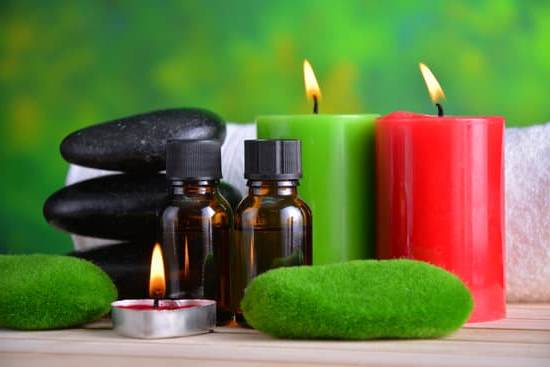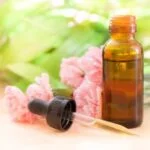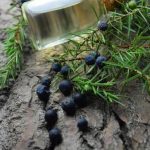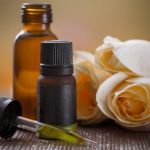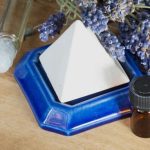The question of whether aromatherapy is based on witchcraft has long been a topic of debate and curiosity. Aromatherapy, the practice of using essential oils for therapeutic purposes, has been around for centuries and is deeply rooted in various cultures. However, some may wonder if there are spiritual or mystical elements tied to this practice.
Aromatherapy’s origins can be traced back to ancient civilizations such as Egypt, China, and India, where aromatic plants were believed to possess healing properties. Over time, the use of essential oils evolved and spread to different parts of the world. Despite its long history, aromatherapy’s association with witchcraft has often raised eyebrows and prompted questions about its true nature.
To better understand this connection, it is crucial to delve into the history of both aromatherapy and witchcraft separately. By exploring their roots and development over time, we can shed light on whether there is indeed a legitimate link between the two practices or if it is merely a misconception fueled by misunderstanding and misinformation. Let’s embark on a journey to uncover the intricate relationship between aromatherapy and witchcraft and separate myth from reality.
The History of Aromatherapy
Throughout history, aromatherapy has evolved alongside advancements in science and medicine. In the 20th century, French chemist René-Maurice Gattefossé coined the term “aromatherapy” after accidentally discovering the healing properties of lavender essential oil on burns. This led to further research on the benefits of essential oils in treating various health conditions, paving the way for modern-day aromatherapy practices.
Despite its long history and proven benefits, aromatherapy has often been associated with witchcraft or mysticism due to the powerful effects of certain essential oils. However, it is important to distinguish between the two concepts. Aromatherapy is a holistic healing practice that focuses on using plant-derived essential oils to enhance physical, mental, and emotional well-being through inhalation or topical application.
Witchcraft, on the other hand, is a spiritual belief system that involves tapping into energy forces for various purposes. While some practitioners may incorporate essential oils into their rituals or spells, aromatherapy itself is not inherently linked to witchcraft.
- Despite misconceptions surrounding aromatherapy’s association with witchcraft.
- It is crucial to recognize that aromatherapy is a legitimate practice rooted in science and backed by research.
- By understanding the historical context and evolution of aromatherapy,
Understanding Witchcraft
Origins of Witchcraft
Witchcraft has a rich and complex history that dates back to ancient times. Its origins can be traced to various cultures and practices around the world, with different beliefs and rituals associated with the craft. In many societies, witches were revered for their healing abilities, intuition, and connection to nature. However, over time, fear and misconceptions led to the persecution of those accused of practicing witchcraft.
Myths vs. Reality
One of the biggest misconceptions about witchcraft is its association with evil or negative forces. In reality, witchcraft is a spiritual practice that focuses on harnessing natural energies and working in harmony with the environment. Witches often use tools such as herbs, crystals, tarot cards, and candles to enhance their magical work and promote healing. It is important to understand that witchcraft is a diverse and deeply personal practice, with many different traditions and belief systems.
Aromatherapy in Witchcraft
Aromatherapy plays a significant role in witchcraft by using the power of scent to enhance rituals and spells. Essential oils are believed to have specific properties that can help evoke certain emotions or create a desired atmosphere during magical workings. For example, lavender oil may be used for relaxation and stress relief, while cinnamon oil can be used to stimulate energy and passion.
Incorporating aromatherapy into witchcraft rituals is a way to engage the senses and amplify intention through scent, adding another layer of depth to spiritual practices. While some may argue that aromatherapy itself is not inherently linked to witchcraft practices historically speaking – it’s worth noting that modern-day practitioners have found this blend quite fitting.
The blending of aromatherapy with witchcraft allows individuals to harness the healing powers of essential oils while also tapping into their intuitive abilities and connection with nature. By understanding the true essence of both practices, individuals can explore the intersection between aromatherapy and witchcraft in a respectful and empowering way – free from misconceptions or stereotypes surrounding these ancient traditions.
The Connection Between Aromatherapy and Witchcraft
Aromatherapy, as the use of essential oils for therapeutic purposes, has been around for centuries. It is rooted in ancient civilizations such as Egypt, China, and India, where aromatic plants were used for healing and spiritual practices. While the practice of aromatherapy has evolved over time to incorporate modern scientific advancements, there are still lingering misconceptions about its connection to witchcraft.
Here are some key points to consider when discussing the relationship between aromatherapy and witchcraft:
- Aromatherapy is a holistic healing practice that focuses on utilizing the natural properties of essential oils to promote wellness.
- Witchcraft, on the other hand, is a spiritual practice or belief system that may involve rituals, spells, and magic.
- The misconception that aromatherapy is based on witchcraft arises from the historical association of herbal remedies and spiritual practices in ancient cultures.
While some individuals may choose to incorporate essential oils into their magical rituals or ceremonies, it is important to recognize that aromatherapy itself is not inherently linked to witchcraft. The use of essential oils for therapeutic purposes is grounded in science and research-backed evidence on their physical and emotional benefits.
Debunking Common Myths About Aromatherapy and Witchcraft
Aromatherapy has often been associated with various myths and misconceptions, one of which is the notion that aromatherapy is based on witchcraft. In reality, aromatherapy is a holistic healing practice that utilizes essential oils extracted from plants to promote physical, emotional, and mental well-being. It is rooted in ancient traditions and practices that have been passed down through generations.
One common myth about aromatherapy is that it involves casting spells or using magic to achieve desired outcomes. This misconception likely stems from the historical connection between herbal medicine and spiritual beliefs in some cultures. However, aromatherapy does not involve any form of witchcraft or supernatural elements. Instead, it focuses on harnessing the therapeutic properties of plant essences to support health and wellness.
Another myth surrounding aromatherapy is that it is only effective for relaxation or stress relief. While aromatherapy can certainly help alleviate symptoms of anxiety and promote relaxation, its benefits extend far beyond just calming the mind.
Essential oils have diverse healing properties that can address a wide range of physical and emotional issues, including pain management, immune support, sleep improvement, and mood enhancement. It is important to debunk these common misconceptions about aromatherapy to fully appreciate its value as a natural healing modality.
| Myth About Aromatherapy | Debunking Fact |
|---|---|
| Aromatherapy involves witchcraft or magic | Aromatherapy is a holistic healing practice based on plant essences |
| Aromatherapy is only for relaxation | Essential oils have diverse healing properties for various issues |
The Science Behind Aromatherapy
Aromatherapy is the practice of using essential oils extracted from plants to promote overall well-being. But how exactly do these aromatic oils work their magic on our minds and bodies? The science behind aromatherapy lies in the chemical composition of essential oils and their interaction with our senses.
Chemical Composition of Essential Oils
Essential oils are made up of various volatile compounds that give them their distinct aroma and therapeutic properties. These compounds can include terpenes, esters, aldehydes, ketones, and more. Each essential oil has a unique chemical composition that determines its effects on the body when inhaled or applied topically.
Interaction With the Senses
When inhaled, the molecules in essential oils travel through the nasal passages and stimulate olfactory receptors. These receptors send signals to the brain’s limbic system, which plays a role in emotions, memory, and behavior. This is why certain scents can evoke specific emotions or memories. Additionally, when essential oils are applied to the skin, they can be absorbed into the bloodstream and have physiological effects on the body.
The Power of Aromatherapy
The therapeutic benefits of aromatherapy go beyond just smelling nice. Different essential oils have been found to have various health benefits, such as reducing stress and anxiety, improving sleep quality, relieving headaches, easing muscle pain, boosting energy levels, and more.
While aromatherapy is often used for relaxation and emotional support, its scientific basis in chemistry and biology makes it a valid complementary therapy for overall well-being. So while some may question if aromatherapy is based on witchcraft due to its mystical associations with ancient practices, at its core, it is grounded in sound scientific principles that explain how essential oils actually work to benefit our mind-body connection.
Benefits of Aromatherapy
Aromatherapy has gained popularity in recent years as a holistic approach to improving mental, emotional, and physical well-being. The use of essential oils in aromatherapy is believed to have therapeutic effects on the body and mind. While some may associate aromatherapy with witchcraft or mysticism, it is important to understand that aromatherapy is actually based on scientific principles and research-backed practices.
Essential oils used in aromatherapy are extracted from plants and have been used for centuries for their various properties. These oils are known to have calming, uplifting, energizing, or even pain-relieving effects when inhaled or applied topically. This natural approach to health and wellness focuses on using the scents of these essential oils to promote relaxation, improve mood, relieve stress, and enhance overall well-being.
Studies have shown that certain essential oils used in aromatherapy can have a direct impact on the brain’s limbic system, which plays a role in emotions, behavior, sense of smell, and long-term memory. For example, lavender oil is commonly used to promote relaxation and improve sleep quality, while peppermint oil is known for its invigorating and energizing properties.
By understanding the science behind how these essential oils work on a physiological level, we can appreciate the benefits they offer for mental clarity, emotional balance, and physical health.
| Aromatherapy Benefits | Effects |
|---|---|
| Lavender Oil | Promotes relaxation and improves sleep quality |
| Peppermint Oil | Invigorating and energizing properties |
Conclusion
Aromatherapy has a rich history that dates back to ancient times, where essential oils were used for their therapeutic properties. Despite its long-standing tradition, there has been debate over the connection between aromatherapy and witchcraft. While some may argue that aromatherapy is rooted in witchcraft practices, it is essential to separate facts from misconceptions.
In debunking common myths about aromatherapy and witchcraft, it becomes evident that aromatherapy is not based on witchcraft. Aromatherapy involves the use of essential oils derived from plants to promote health and well-being, focusing on the therapeutic benefits of these natural substances. On the other hand, witchcraft is a spiritual practice that encompasses various beliefs and rituals unrelated to the science behind aromatherapy.
The intersection of aromatherapy and witchcraft can be viewed as a misconception perpetuated by misinformation. Aromatherapy is a holistic approach to health that harnesses the power of essential oils, while witchcraft is a spiritual practice with its own set of beliefs and traditions. By understanding the distinctions between these practices, individuals can embrace the benefits of aromatherapy without associating it with witchcraft. Ultimately, both aromatherapy and witchcraft have unique histories and purposes that should be respected in their own right.

Are you looking for a natural way to improve your health and wellbeing?
If so, aromatherapy may be the answer for you.

